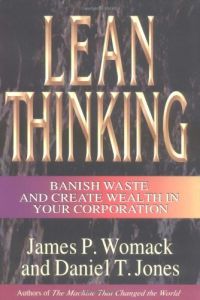
Lean Thinking
Banish Waste and Create Wealth in Your Corporation
Recommendation
James P. Womack and Daniel T. Jones sound a battle cry against institutional waste. What a pity, they say, that so much time, energy, and money are needlessly thrown away. They urge executives to redefine their values based on customer experiences and to track the flow of value from manufacturing to final sale. The result, they promise, is that companies will save time, energy and money - and will revolutionize their entire organizations in the bargain. Not content to simply study western problem-solving methods, the worldly authors guide their readers through a wide array of Japanese manufacturing wisdom as well. Their generosity and depth make this a pleasantly informative book, which defies the current trend in business books of proclaiming doom and then offering a quick fix. This book would rather proclaim hope, which is just one of the reasons that getabstract recommends it to serious managers who want to trim the fat.
Summary
About the Authors
James P. Womack advises North American firms. He is also an author and a research affiliate with the Japan Program at the Massachusetts Institute of Technology. He lives in Brookline, Massachusetts. Professor Daniel T. Jones is Director of the Lean Enterprise Research Center at the Cardiff Business School, University of Cardiff, Wales. He advises European firms and lives in Little Birch, Herefordshire, U.K.














Comment on this summary